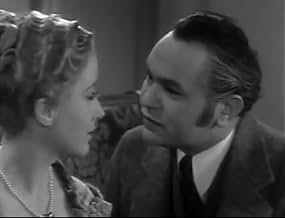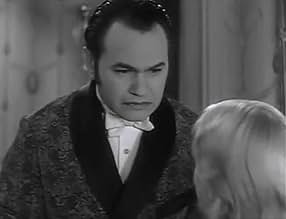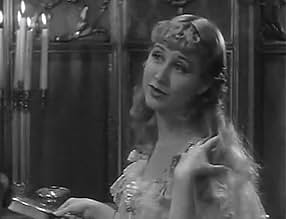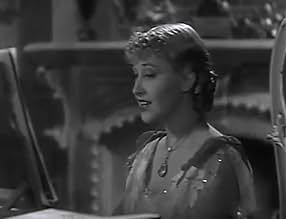Aggiungi una trama nella tua linguaArt student John Hayden interrupts his studies in Greece to head his father's meat packing business on his father's death. He marries social climber Martha who taunts him for his ideals rega... Leggi tuttoArt student John Hayden interrupts his studies in Greece to head his father's meat packing business on his father's death. He marries social climber Martha who taunts him for his ideals regarding worker happiness and meat purity. He begins supporting the musical career of singer ... Leggi tuttoArt student John Hayden interrupts his studies in Greece to head his father's meat packing business on his father's death. He marries social climber Martha who taunts him for his ideals regarding worker happiness and meat purity. He begins supporting the musical career of singer Laura. During the Spanish American war he sells the Army tainted meat. Martha puts detecti... Leggi tutto
- Regia
- Sceneggiatura
- Star
- Premi
- 2 vittorie totali
- Banker
- (non citato nei titoli originali)
- Doctor
- (non citato nei titoli originali)
- Banker
- (non citato nei titoli originali)
- Hayden's First Butler
- (non citato nei titoli originali)
- Voting Returns Announcer
- (non citato nei titoli originali)
Recensioni in evidenza
I have to admit I was less impressed with this film than the first person who commented. First of all, with all of the beautiful operatic music in the world, why is the only song Laura sings "Home on the Range" - many times? Okay, I get the cattle theme but it was too much. And I didn't understand John suddenly becoming this ruthless man willing to send to soldiers overseas bad meat with fillers and other substances. Laura gives him one little lecture, and he turns into a third world dictator.
Robinson is very good, though he and Francis wear a lot of makeup. The characters, however, weren't especially likable or sympathetic. John does have the audience's sympathy at the beginning and at the very end, where Robinson's acting really stood out.
There are some unfortunate sequences in which the dialog becomes florid, stilted, and too much in the manner of a lesser Victorian romance. And the use of "Home On The Range" as a Rosebud motif comes across as ludicrous, to put it charitably. Such flaws, however, do not seriously lessen the impact and entertainment value of this undeservedly obscure picture.
John Hayden (Edward G. Robinson) is the heir to a meatpacking fortune and has just learned that his father has died. Despite claiming to being the champion of improved working conditions, wages and cleanliness, he spends the next few years leaving the company to essentially run itself while he devotes his energy towards raising a family. However, he slowly realizes that his company is going bankrupt AND his wife couldn't care less, as her father is the head of a group of meatpackers who are opposed to Hayden's STATED ideals. I say stated because during his absence from the company, he pretty much ignored his fine talk of running a progressive company.
Now with a company in trouble and a marriage a bit rocky, Hayden decides to run the company like the rest....or worse. Cleanliness and safe hygience mean nothing to him. In addition, he's got a new sweetie (Kay Francis) and his energies are focused on her and making millions...his wife, well, she's expendable. When war breaks out, he's more than happy to sell the government tainted meat for the soldiers! Nice guy, huh? If you haven't guessed, he's essentially a jerk!
So what did I like and not like about this film? What I didn't like was that Hayden changed so dramatically...too dramatically to make any sense. One minute he's a champion of the little people and a good husband, the next he's the opposite. His change was just too abrupt to be believable. On the positive side, the acting is very nice and the film has all the polish you'd expect from a Warner Brothers epic...though I could have done without all the times the film used "Home on the Range". Overall, decent but hardly among Robinson's best...and much of it is because no one in this film is likable and so you lose interest along the way. Plus, it never seems to know when to quit...so it's overlong to boot.
Nonetheless, ILAW is entertaining and absorbing with its often rambling tale of a Chicago robber baron loosely modeled after real life meat-packer Samuel Insull. And while the romantic scenes between Robinson and his leading ladies Kay Francis and Genevieve Tobin may lack appropriate chemistry or credibility, it cannot be denied that in ILAW Robinson delivered a robust and commanding performance. He was a powerful actor in this early pre-code effort, and certainly gave us every indication that he would evolve into the superb character actor that became his future destiny.
As for veteran director Alfred E. Green, he would go on to direct The Jolson Story, The Fabulous Dorseys and The Eddie Cantor Story among many other films.
ILAW is little known today. That is too bad, because it provides an excellent time capsule that captured three accomplished actors as they were moving into their peak career period, as well as just how the Warner Brothers Studio System actually worked in practice. Next time TCM shows ILAW, check it out!
Lo sapevi?
- QuizAlthough a novel by David Karsner is credited onscreen as the source, none has been located; it may not have been published. However, David Karsner's biography "Silver Dollar: The Story of the Tabors" was made into a film the previous year, also starring Edward G. Robinson named Silver Dollar (1932).
- BlooperThe newspaper item "10 Years Ago Today" near the end of the film stated that Hayden fled to Greece on the same day that the Chicago White Sox defeated Detroit, 10-6. But an item next to it noted that it was the 50th anniversary of the death of Scottish physicist James Clerk-Maxwell, which occurred in November 1879. Because the baseball season in 1919 ended in September, the anniversary of the White Sox-Tigers game could not have been on the same date as the anniversary of Maxwell's death.
- Citazioni
Charles Lane: John, you're mad!
John Mansfield Hayden: Yes. Maybe I am mad. But it's madmen who run the world today.
- Colonne sonoreHome on the Range
(1904) (uncredited)
Music by Daniel E. Kelley (1904)
Lyrics by Brewster M. Higley (1873)
Played during the opening credits and at the end
Played on piano and sung by Kay Francis
Whistled and sung a cappella by Edward G. Robinson twice
Reprised by Kay Francis twice
Played by a band at the election celebration
Played as background music often as a love theme for John and Laura
I più visti
Dettagli
- Data di uscita
- Paese di origine
- Lingua
- Celebre anche come
- I Loved a Woman
- Luoghi delle riprese
- Azienda produttrice
- Vedi altri crediti dell’azienda su IMDbPro
- Tempo di esecuzione
- 1h 30min(90 min)
- Colore
- Mix di suoni
- Proporzioni
- 1.37 : 1


































